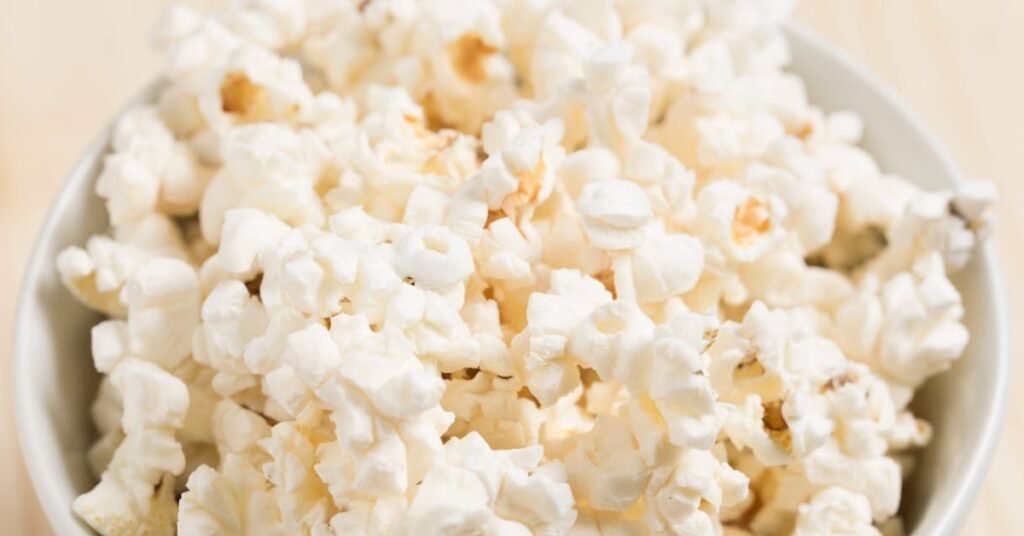Matcha is having its moment now and everyone seems to be drinking matcha lattes. It is getting more and more popular in the coffee shops and supermarkets. Even green matcha desserts are now common beyond traditional Japanese tea rooms. I was a big fan of matcha even before it got popular and I am curious if it is just another trendy superfood, or if it is way better for you than green tea, coffee, or cocoa.
Let’s find out what Matcha is, what is its nutritional value and how it compares to other popular drinks like coffee, green and black tea as well as cocoa. Let’s look into Matcha’s benefits proven by science.
What Is Matcha and Why Is It So Popular?
Matcha is a very high-quality Japanese green tea that is made by whisking powdered tea leaves into hot water, rather than steeping whole leaves and discarding them. This way we consume way more plant nutrition than we would do in any other tea forms where we only stew the leaves and drink the water. Matcha tea is grown in the traditional way where the tea leaves are grown in the shade therefore the tea has a more subtle and less bitter flavor. Growing matcha in the shade also increases biologically active compounds, including theanine, caffeine, chlorophyll, and various types of catechins. (1)
So, Matcha is becoming so popular because of its health benefits and its more gentle taste that is more palatable than a regular green tea.
Unique Nutritional Highlights of Matcha:
Since matcha is powdered green tea leaves, you’re consuming the entire leaf, which gives you more nutrients and antioxidants than steeped tea. Matcha tea is high in Polyphenols & Catechins: Especially EGCG, one of the most potent plant compounds for metabolic and anti-inflammatory benefits.
Matcha is also rich in L-theanine, which works with caffeine and makes you feel energized more steadily, without energy ups and downs like from coffee. This is one reason matcha is becoming so popular in both wellness and fitness communities.
Here’s a detailed breakdown of the nutrition facts of matcha per 1 gram serving (about half a teaspoon), which is normally used for one cup of matcha.
| Nutrient | ~Amount | Key Benefits |
|---|---|---|
| Calories | 3 kcal | Very low calorie, ideal for weight management |
| Protein | 0.3 g | Trace amount, not a significant protein source |
| Fat | 0 g | Almost none |
| Carbohydrates | 0.4 g | Includes fiber; minimal sugar |
| Fiber | 0.3 g | Supports digestion and gut health |
| Vitamin C | 1.75 mg | Antioxidant, supports immunity |
| Vitamin A (as beta-carotene) | 290 µg | Eye health, skin, immune support |
| Vitamin K | 29 µg | Bone health, blood clotting |
| Potassium | 27 mg | Heart health, electrolyte balance |
| Caffeine | 35 mg | Focus, alertness (with smoother energy curve thanks to L-theanine) |
| L-theanine | 15–20 mg | Promotes calm focus, reduces stress |
| EGCG (Epigallocatechin gallate) | 60–100 mg | Powerful antioxidant, supports metabolism, may help fight inflammation & cancer |
| Chlorophyll | High | Detoxifying properties, supports skin and immune health |
Please note that these amounts of nutrients are estimated and will vary in different kinds and brands of matcha.
To get a bit of a better picture, let’s have a look at how matcha compares with other popular drinks Including Coffee, green and black tea, and cocoa.

Matcha, Coffee , Green Tea , Black Tea vs Cacao Comparison
| Drink | Caffeine (per cup) | Key Compounds | Energy Effect | Taste Profile | Best For |
|---|---|---|---|---|---|
| Matcha | 35 mg | L-theanine, EGCG, chlorophyll, catechins | Calm alertness, sustained focus | Earthy, umami, slightly bitter | Mindful mornings, focus, antioxidants |
| Coffee | 95 mg | Caffeine, chlorogenic acids | Quick jolt, can cause crash | Bitter, acidic | Morning energy, productivity |
| Green Tea | 30 mg | Catechins (EGCG), theanine | Light lift, smooth focus | Light, grassy | Afternoon sipping, mild energy boost |
| Black Tea | 47 mg | Theaflavins, caffeine, thearubigins | Moderate energy, more jittery | Robust, malty | Breakfast tea, energy without coffee |
| Cacao (Ceremonial) | 15–25 mg | Theobromine, magnesium, phenylethylamine (PEA) | Gentle uplift, heart-opening feel | Rich, chocolaty, slightly bitter | Mood support, creativity, evening ritual |
Each drink has its own benefits, but here is a quick summary:
Matcha: Is high in antioxidants (up to 137x more than green tea) and is great for calm focus.
Coffee: Strongest caffeine punch, but can spike cortisol and acid levels.
Green Tea: Gentle on the gut, contains both caffeine and theanine.
Black Tea: Bolder flavor, moderate caffeine, good for coffee transitioners.
Cacao: Contains theobromine, a gentler stimulant than caffeine, which boosts mood and blood flow.
How much caffeine does matcha have compared to other drinks?
A 1-gram serving of matcha contains around 30–35 mg of caffeine, less than coffee or black tea, but more than regular green tea. The of L-theanine helps smooth the caffeine spike, so you will not get caffeine jitters and the feeling of tiredness after a few hours. Instead, you will feel a steady energising feeling throughout the day.
If you are struggling to sleep, you should avoid any caffeine at least 8 hours before bed.
Potential Health Benefits of Matcha
Matcha green tea has high antioxidant and anti-inflammatory properties and may have positive effects on our physical and mental health. Here are some mostly studied health benefits of matcha:
May Help Protect Against Cancer
Matcha is rich in EGCG, a powerful antioxidant that may help stop cancer cells from growing and spreading. It also reduces inflammation and supports a healthy metabolism, both important for lowering cancer risk, especially in the gut. (1)(4)(5)
Has Anti-inflammatory Properties
EGCG in matcha helps calm chronic inflammation in the body, which is linked to many diseases like heart issues, liver problems, and even gallstones. It reduces harmful molecules (ROS) and calming immune overreactions. (1)
Supports Heart Health
Matcha may protect your heart by lowering inflammation, improving blood fat levels, and reducing damage caused by things like smoking or stress. It may also help prevent heart injury during surgeries by reducing oxidative stress.(1)
May Have Antiviral Effects
Early research suggests matcha might help fight viruses, including the virus that causes COVID-19. It could support your immune system and help stop viruses from spreading, although we need more studies proving this.(1)
Helps Manage Blood Sugar
Matcha can support healthy blood sugar levels by slowing down how fast sugars are released from food. It may also help your body respond better to insulin, making it useful for people watching their glucose or at risk of diabetes.(1)
Boosts Brain Function
Thanks to a mix of caffeine, L-theanine, and EGCG, matcha may improve focus, clarity, and memory. It also helps reduce brain inflammation and oxidative stress, which can lower the risk of Alzheimer’s and other brain-related diseases.(1)
A year-long clinical study looked at how daily matcha consumption affects brain function and sleep in older adults with mild memory issues. The results showed that those who drank matcha (compared to placebo) had better emotional awareness. They were more accurate at reading facial expressions, which is an important part of cognitive functioning. Better sleep quality was also recorded. Although there were no significant changes in memory, the study suggests that matcha may help with early signs of cognitive decline and improve mood. (3)
Matcha May Help with Weight Management and Metabolism
A recent study found that matcha green tea may help fight obesity and support better metabolism, especially in cases caused by a high-fat diet. In a mouse experiment, those given matcha showed less weight gain, reduced fat buildup in the liver, and better overall metabolic health. However, we need human studies to support this claim. (2)
What does matcha taste like?
Like with green tea or coffee, there are many variations and qualities of matcha tea and the taste can be very different. Matcha tea varies from smooth and naturally sweet or umami ceremonial grade to mild and earthy to bitter lower grade matcha. The better quality of Matcha the more color and sweet and subtle taste it will have. Good quality matcha should never taste bitter, chalky, or grainy.

If you would like to buy your first good-quality Matcha, read:
The Best Matcha Powder To Buy: Grades, Brands & What To Look For
What Milk is best with Matcha?
It really depends on your taste and your milk preference, but I would choose a plant-based milk that is not very distinct in flavor so you can feel the subtle taste of matcha. My favorite combo is with Soy Milk as it is very subtle in flavor and has the most amount of protein from all the other milk. If you want a more creamy texture, I would go for oat, and barista milk and if you like exotic flavor, coconut milk tastes quite nice, especially with a cold matcha drink.
I would not recommend it with cow’s milk as the fat content in the milk might reduce antioxidant absorption. I would also avoid sweetened and flavored milk as they would overpower the matcha taste.
If you want to learn about plant-based milk, read:
Which vegan Milk Is the Healthiest? Nutritional & Environmental Breakdown, and
Ultimate Guide: The Best & Worst Plant-Based Milk Brands
How to Make Lemon Balm Tea, And Is It Really Good for Weight Loss?
Is Hydrogen Water Good For You, Or Is It A Wellness Industry Fad?
Is matcha the same as green tea?
Yes and no.
Matcha comes from the same green tea leaf. The difference is that matcha is a green tea that is grown in a shade and then is steamed, dried, and ground into a very fine powder. Green tea is grown exposed to sunlight and the leaves are steeped in hot water and removed before drinking.
To summarise:
Matcha is an amazing drink that has so much history and health benefits and it is no wonder it has gained popularity in recent years. If you’re trying to cut back on coffee, matcha might be perfect for you. Enjoying even one cup a day can improve your gut, heart, and brain health, but we all need to remember that like with all drinks that become very popular, the quality is very important. And make sure to not add a lot of sugar or flavorings to reap the benefits.
references
- Kochman, J., Jakubczyk, K., Antoniewicz, J., Mruk, H., & Janda, K. (2020). Health Benefits and Chemical Composition of Matcha Green Tea: A Review. Molecules, 26. https://doi.org/10.3390/molecules26010085.
- Wang, Y., Yu, Y., Ding, L., Xu, P., & Zhou, J. (2022). Matcha green tea targets the gut–liver axis to alleviate obesity and metabolic disorders induced by a high-fat diet. Frontiers in Nutrition, 9. https://doi.org/10.3389/fnut.2022.931060.
- Uchida, K., Meno, K., Korenaga, T., Liu, S., Suzuki, H., Baba, Y., Tagata, C., Araki, Y., Tsunemi, S., Aso, K., Inagaki, S., Nakagawa, S., Kobayashi, M., Kakuma, T., Asada, T., Ota, M., Takihara, T., & Arai, T. (2024). Effect of matcha green tea on cognitive functions and sleep quality in older adults with cognitive decline: A randomized controlled study over 12 months. PLOS ONE, 19. https://doi.org/10.1371/journal.pone.0309287.
- Korn, A., Jędrzejczyk, J., Łopacińska, O., Stańczyk, K., Czarnecka, K., Wójcik, E., Korczak, A., Szewczyk, O., Olek, E., & Burda, K. (2024). Exploring the Health Benefits of Matcha: A Comprehensive Review. Journal of Education, Health and Sport. https://doi.org/10.12775/jehs.2024.68.51235.
Ye, J., Fang, Q., Zeng, L., Liu, R., Lu, L., Dong, J., Yin, J., Liang, Y., Xu, Y., & Liu, Z. (2023). A comprehensive review of matcha: production, food application, potential health benefits, and gastrointestinal fate of main phenolics.. Critical reviews in food science and nutrition, 1-22 . https://doi.org/10.1080/10408398.2023.2194419.
Silvija Meilunaite, PN1-NC, CSMC, is a certified nutrition and menopause coaching specialist who writes about midlife health, nutrition, and evidence-based wellness. She focuses on research-driven approaches to feeling better in your 40s and beyond, with a special interest in low-tox living and supportive daily habits.
- This author does not have any more posts.





